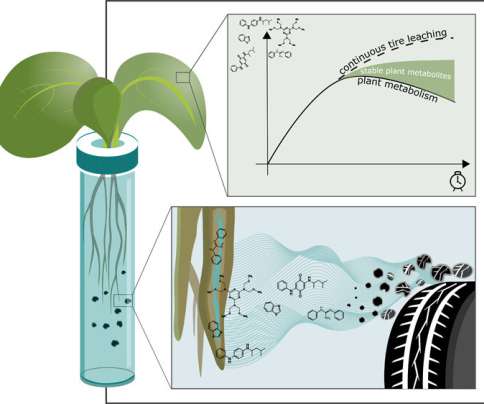U Vienna team finds stable metabolized TWP-derived compounds with unknown toxicities in lettuce
Green Car Congress
DECEMBER 29, 2022
Researchers at the University of Vienna (Austria) have demonstrated that tire wear particle (TWP)-derived compounds are readily taken up by lettuce with measured maximum leaf concentrations between ∼0.75 Not only the parent compounds but also their transformation products, many of which are still unknown, may exert harmful effects on biota.












Let's personalize your content